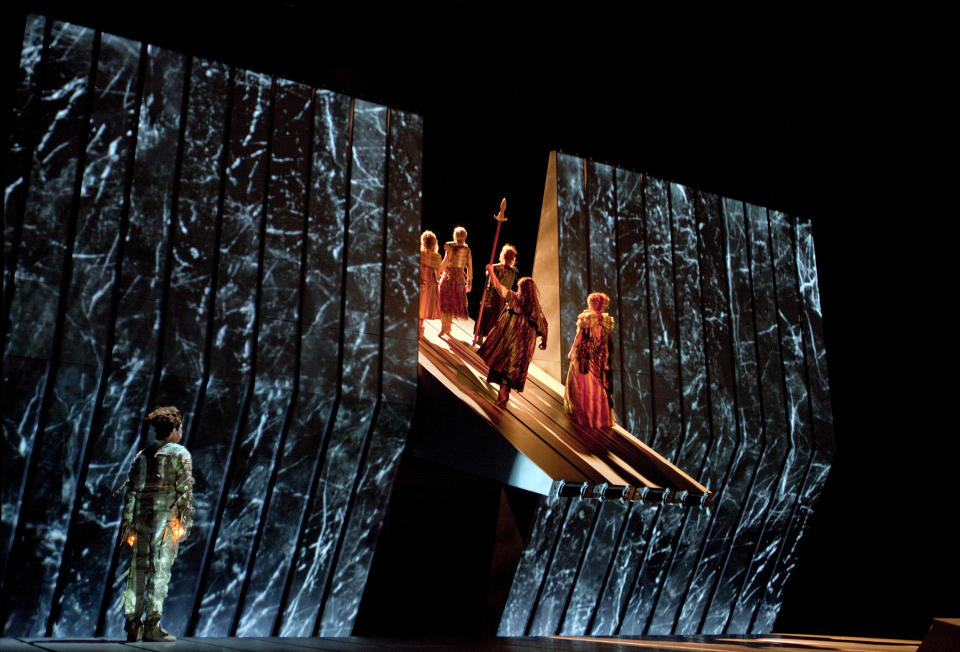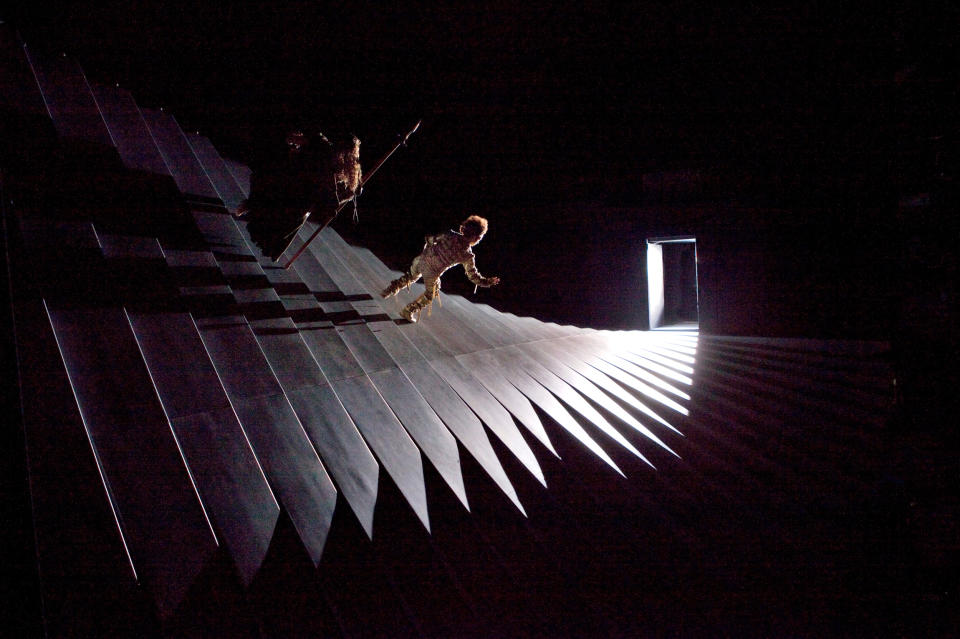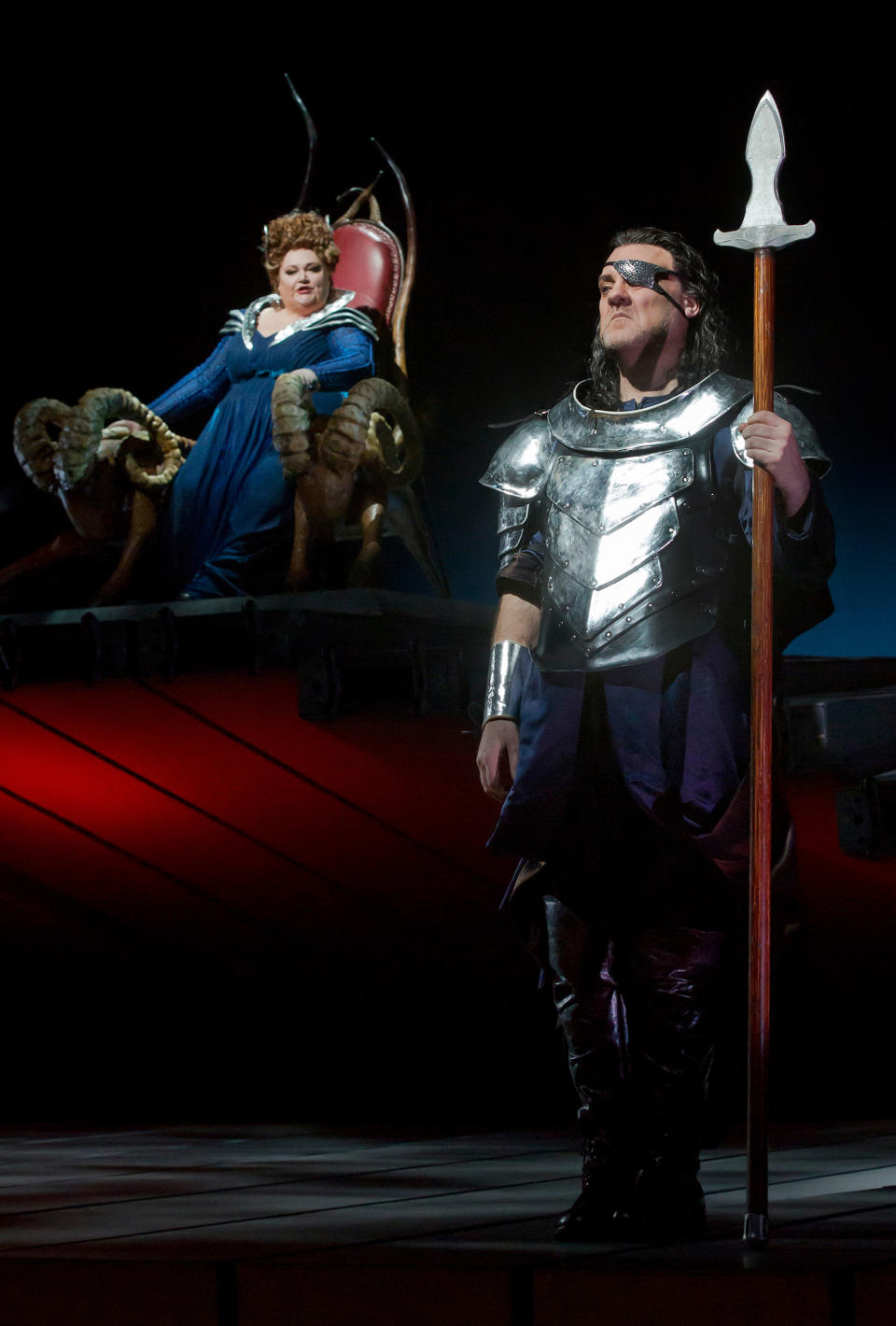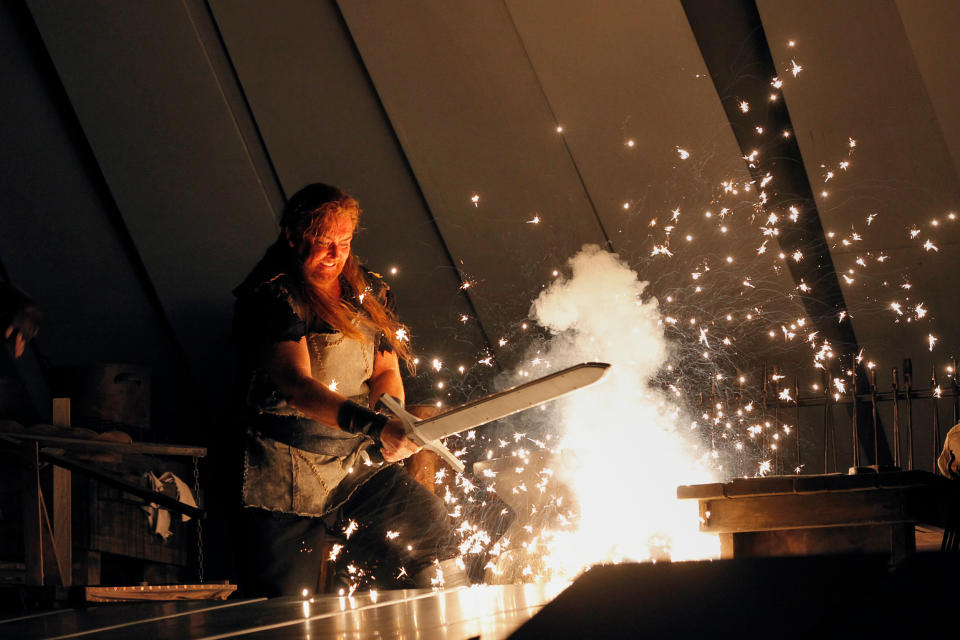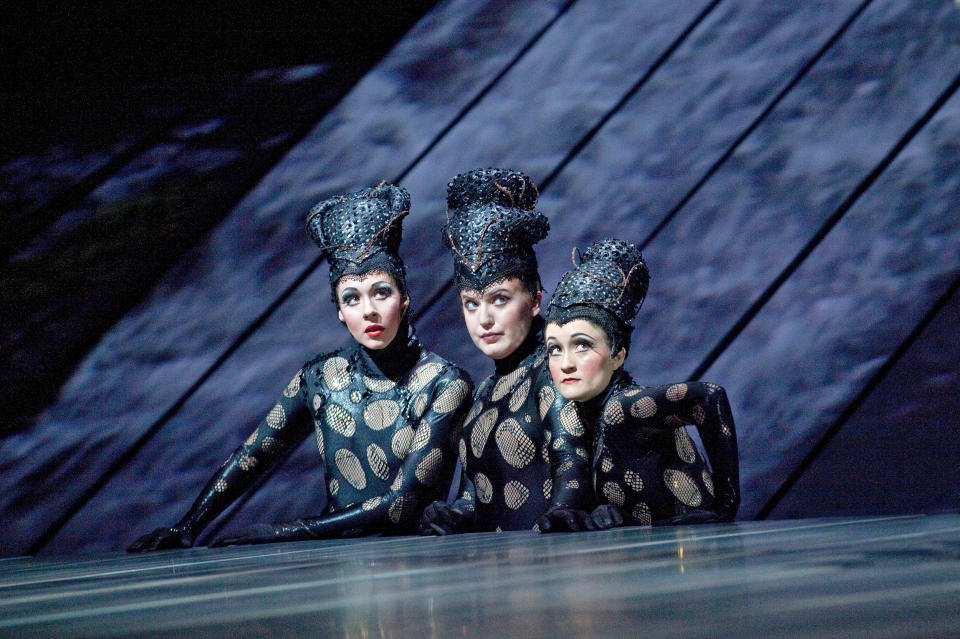Lepage 'Ring' comes full cycle at Met
NEW YORK (AP) — In the end, it's all about The Machine.
And that's the fundamental flaw in Robert Lepage's staging of Wagner's "Ring" cycle, which is closing out the Metropolitan Opera's season with three complete performances.
By now even many people who don't follow opera have heard about the $16 million high-tech set Lepage devised for the production: a 45-ton contraption consisting of 24 movable metal planks which, aided by computerized projections, can look like a forest one moment and a mountaintop the next.
Watching the four operas piecemeal as they were assembled over the past 19 months, this reviewer was enchanted by some of the effects Lepage has conjured up: the Rhinemaidens dangling forlornly high atop the set after Alberich steals their gold; the planks twisting themselves into a giant staircase on which Wotan and Loge descend to Nibelheim; the 3-D forest bird flying through the trees and even perching on Siegfried's lap.
Those and other dazzling moments are still there. But seen over the span of just eight days in a cycle that ended Thursday night, the production comes across as less than the sum of its parts. That's because Lepage has failed to dig beneath the surface of Wagner's epic tale of greed, betrayal, love and redemption. With no coherent vision of what the "Ring" might have to say to a modern audience, the production becomes an arid exercise in mechanics.
It's heavy lifting with no heart; spectacle with no soul.
The redeeming aspect of this "Ring" is the musical performance, which meets the highest standards. All the leading roles were in strong hands: Bryn Terfel was a tower of vocal strength and dramatic presence as Wotan; his fellow bass-baritone Eric Owens brought Wotan's nemesis Alberich to life with searing vocalism; mezzo-soprano Stephanie Blythe sang with her usual sumptuous power as Wotan's wife, Fricka; the stentorian bass Hans-Peter Koenig stood out in three different roles, most notably as the villainous Hagen; Katarina Dalayman (sharing the role with Deborah Voigt) was a compelling Bruennhilde, though high notes at times forced her into a piercing shriek.
Fabio Luisi led the orchestra in an account of the score that, if not the last word in sweep and majesty, maintained elegance, transparency and brisk pacing.
Because this is the Met's first new "Ring" in more than 20 years and the highest-profile undertaking since Peter Gelb became general manager in 2006, the production has been closely scrutinized by critics, and many have been harsh. None more so than Alex Ross, who wrote in The New Yorker magazine: "Pounds for pound, ton for ton, it is the most witless and wasteful production in modern operatic history."
Earlier this week, The News York Times disclosed that publicly funded classical radio station WQXR had pulled a blog posting that criticized the production following a complaint from Gelb. Laura Walker, president and chief executive of WQXR's parent, New York Public Radio, told the Times that the post "wasn't up to our high standards" and was already under review when she heard from Gelb.
In another unusual move, the Met took out a full-page ad in last Sunday's Times filled not with the customary blurbs from critics but with quotes from ordinary music lovers who had written their views about the production — pro and con — on Facebook, Twitter and other social media sites.
All the fuss seems certain to help keep controversy brewing over this "Ring," which runs for one more cycle this season and will be back in the spring of 2013 for three more. Also, an HD presentation of all four operas will encore in movie theaters beginning May 9.
Meanwhile, here's a brief night-by-night rundown of the second cycle:
DAS RHEINGOLD:
—Substituting on short notice for the wonderful character tenor Stefan Margita in the role of Loge, Adam Klein made a strong impression, once past a tentative start possibly caused by the staging, which requires him to repeatedly walk backward uphill.
—The malfunctions that plagued the production previously were mostly gone, but not entirely. In the final scene, the hammock in which the giants place Freia while gold is piled on top of her didn't descend smoothly, and soprano Wendy Bryn Harmer was visibly uncomfortable until it settled down. This is one of Lepage's lamer ideas, anyway, since the audience can plainly see Freia even when she is supposed to be completely covered by the gold.
DIE WALKUERE:
—In another last-minute casting switch, the Met brought in Dutch tenor Frank van Aken for the unenviable task of subbing for the ailing Jonas Kaufmann as Siegmund. Van Aken, who is married to soprano Eva-Maria Westbroek, was in town to watch her perform the role of Sieglinde. It had the makings of a great story, but sadly van Aken's singing was underpowered and he came close to cracking several times. By contrast, Westbroek, whose own debut a year ago was marred by illness, sounded wonderful, her warm, vibrant soprano flooding the auditorium, especially on the long-held phrases of "O herhstes Wunder!"
—Early in Act 2, Wotan's spear rolled off the mountainside and fell to the apron, coming to rest just a few feet from the orchestra pit. Terfel discreetly reclaimed it without missing a beat.
SIEGFRIED:
—In the marathon title role, tenor Jay Hunter Morris paced himself so well that he actually sounded stronger as the night progressed. His disarming portrayal made this young superhero seem less oafish than usual, too. As Mime, the conniving dwarf who has raised Siegfried, tenor Gerhard Siegel sang and twitched his way through the role in high style.
GOETTERDAEMMERUNG:
—Another late substitution, this time for Owens, who canceled because of a sore throat. Richard Paul Fink took over in fine form as Alberich, who appears in a dream to his sleeping son, Hagen.
—In the final moments of the cycle, the drama is undercut in part by the silly mechanical horse Bruennhilde must ride into Siegfried's funeral pyre. The destruction of Valhalla is depicted through plaster statues of five gods. Their heads no longer explode — an effect that drew laughter earlier in the season; now they just crumble to pieces.
It's an underwhelming conclusion for a project that was launched amid such great hope and excitement. Bruennhilde's selfless sacrifice may save the world, but this production now seems beyond redemption.
